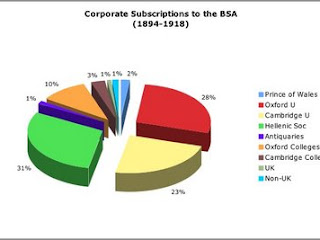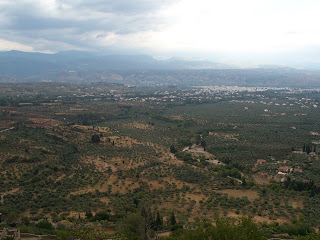The £500 Government Grant to the BSA accounted for more than a quarter of the School's income for the period 1894-1918. However it did not meet with approval in a letter to The Scotsman (5 October 1904). The correspondent was making a complaint to MPs from Scotland over the lack for funding for the Ben Nevis Observatory.
Interestingly the BSA funding was on a par (in 1904) with the Royal Geographical Society and the Royal Zoological Society of Ireland. The Scottish Meteorological Society was awarded ('a miserable') £100, and the correspondent added:
The letter closed with this parting shot:
Interestingly the BSA funding was on a par (in 1904) with the Royal Geographical Society and the Royal Zoological Society of Ireland. The Scottish Meteorological Society was awarded ('a miserable') £100, and the correspondent added:
Even the British School at Athens has a grant of £500 per annum, but a similar sum could not be spared for the Ben Nevis Observatory!However by this period several students from Scotland had been admitted as Students.
The letter closed with this parting shot:
It is evident that for Government grants only English and Irish need apply.






